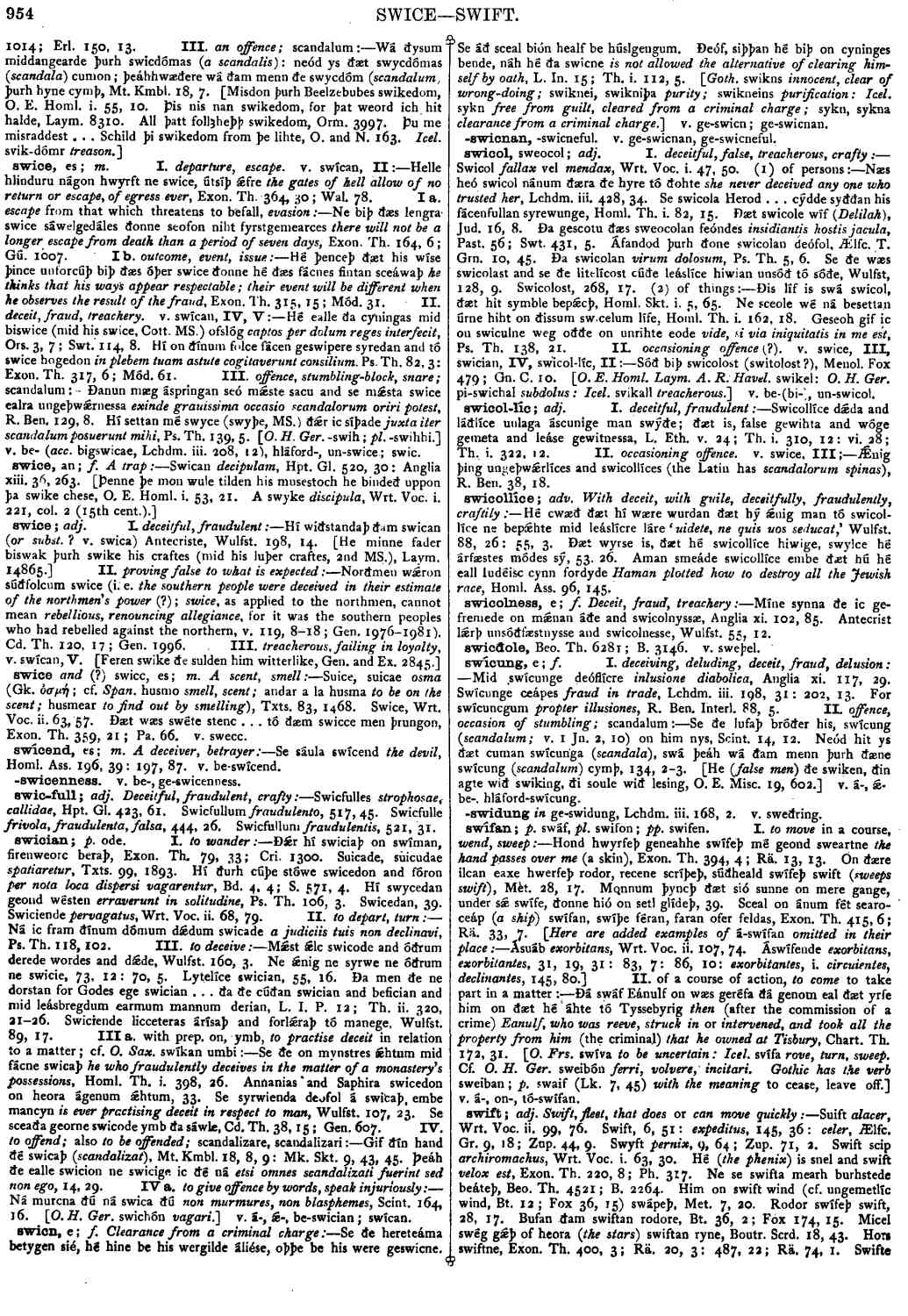swice
- noun [ masculine ]
-
Helle hlinduru nágon hwyrft ne swice, útsíþ ǽfre the gates of hell allow of no return or escape, of egress ever, Exon. Th. 364, 30; Wal. 78. I a. escape from that which threatens to befall, evasion :-- Ne biþ ð æes lengra-swice sáwelgedáles ðonne seofon niht fyrstgemearces there will not be a longer escape from death than a period of seven days, Exon. Th. 164, 6 ; Gú. 1007. Ib. outcome, event, issue :-- Hé þenceþ ðæt his wíse þince unforcúþ biþ ðæs óþer swice ðonne hé ðæs fácnes fintan sceáwaþ
he thinks that his ways appear respectable; their event will be different when he observes the result of the fraud.
- Exon. Th. 315, 15 ; Mód. 31.
-
Hé ealle ða cyningas mid biswice (mid his swice, Cote. MS. ) ofslóg
captos per dolum reges interfecit,
- Ors. 3, 7 ; Swt. 114, 8.
-
Hí on ðínum fulce fácen geswipere syredan and tó swice hogedon
in plebem tuam astute cogitaverunt consilium.
- Ps. Th. 82, 3: Exon. Th. 317, 6; Mód. 61.
- Ps. Th. 139, 5.
- Lchdm. iii. 208, 12
Bosworth, Joseph. “swice.” In An Anglo-Saxon Dictionary Online, edited by Thomas Northcote Toller, Christ Sean, and Ondřej Tichy. Prague: Faculty of Arts, Charles University, 2014. https://bosworthtoller.com/29766.
Checked: 0